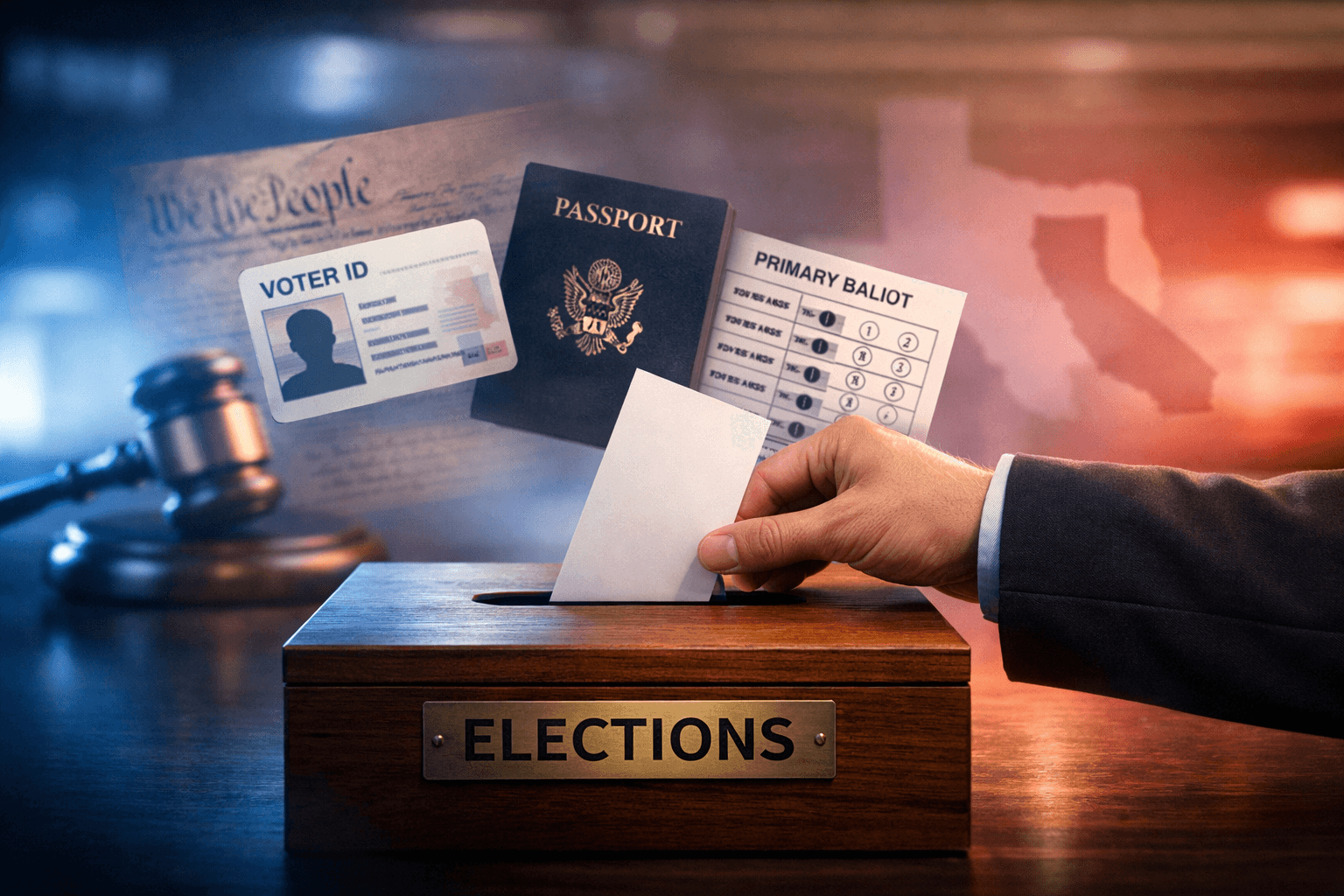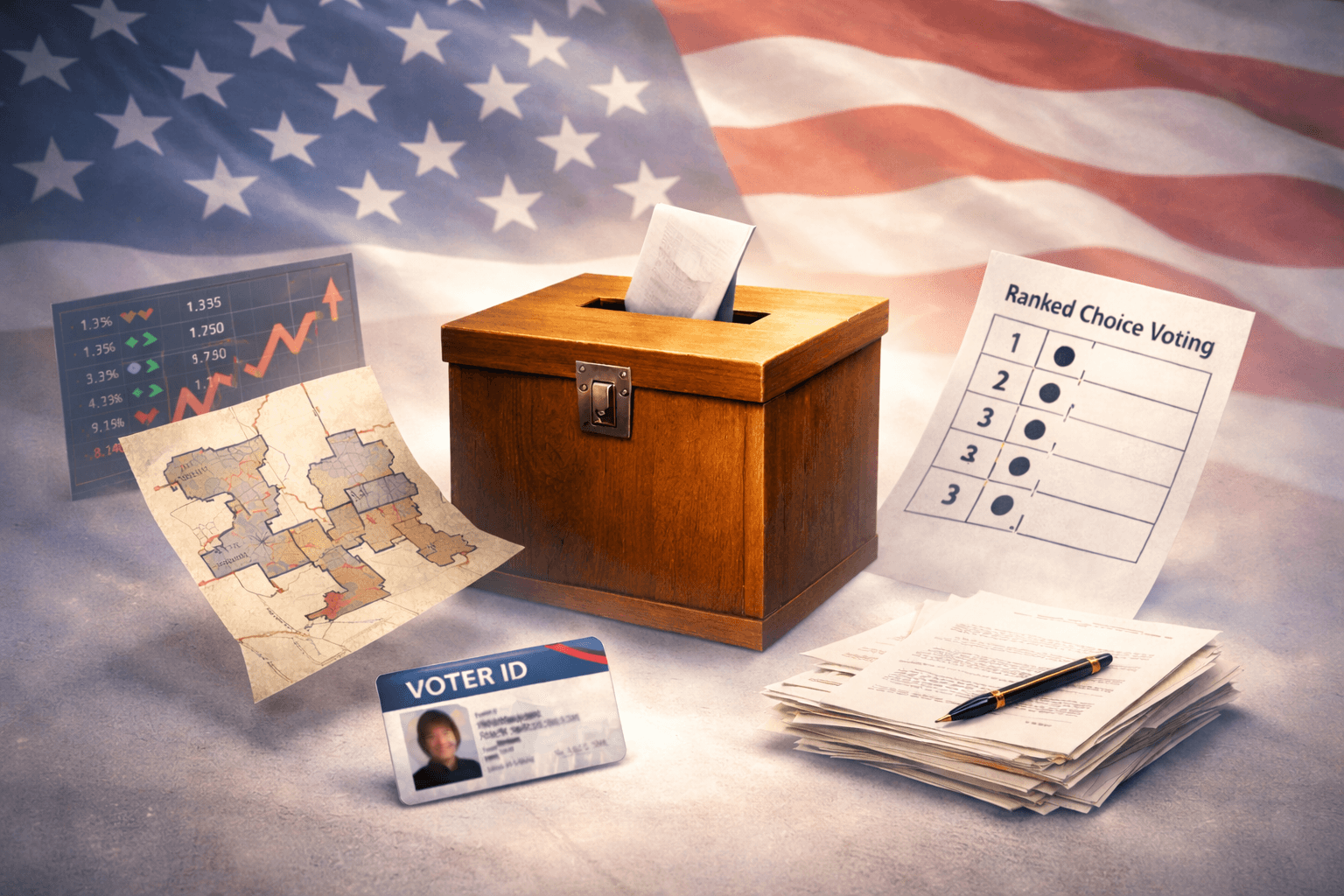Initiative 83: Independents Could Make History with DC Election Reform

Photo Credit: Vlad Gorshkov / Unsplash
Independent voters in Washington DC have an opportunity this November to gain access to the city's most critical elections, the primaries, while also implementing ranked choice voting for all District elections with Initiative 83.
And if support reflects polling conducted earlier this year, history could indeed be made. In May, Lake Research Partners polled 600 likely voters in the city and 62% of respondents supported open primaries and ranked choice voting.
This included nearly half of respondents who said they were a "Strong Yes" for both reforms.
Initiative 83 would do two things:
One, it would open primary elections to the city's 73,000+ independent voters.
The city would conduct partisan primaries and registered party members would vote in their respective party's primaries. However, independent voters would be able to choose between a Republican and a Democratic ballot.
Two, the initiative would implement ranked choice voting for all District elections, including primary and general elections, giving voters the option to rank candidates on the ballot in order of preference.
The "Yes on 83" campaign submitted over 40,000 signatures to put the measure on the November ballot. City elections officials certified nearly 28,000 signatures -- which was well above the number of signatures required.
“The reforms outlined in Initiative 83 better reflect the will of all voters,” said Brian Strege, following the measure's certification. Strege is a member of the Make All Votes Count DC Steering Committee and Ward 8 ANC commissioner.
“With over one out of fifteen D.C. voters signing the Initiative 83 ballot access petition, we are confident this reflection will manifest at the ballot box later this year."
The campaign stresses the importance of primary elections in DC, which by all metrics is a one-party city. All 8 of the city's wards are represented by a Democrat in the DC City Council.
The only thing that stops the council, which has 5 additional at-large seats (including the chairperson), from being represented by all Democrats is the Home Rule Act, which limits how many at-large seats a single party can hold.
The councilmembers who represent each ward are able to win their seat outright in the Democratic primary, which is currently only accessible to registered party members.
Initiative 83 extends an opportunity to independent voters to have a say in who represents them in city government, including other partisan offices like mayor.
In 2022, Mayor Muriel Bowser won re-election with 74.66% of the vote after winning the Democratic primary with 49% -- which raises the other issue Initiative 83 seeks to address:
Not only do most DC elected officials not have to worry about a general election challenge, but they don't need a majority of the vote to secure their seat in the Democratic primary.
Look at Ward 7. In the 2024 Democratic primary, there were 10 candidates on the ballot. Wendell Felder won with 24% of the vote, which means three-quarters of primary voters cast a ballot for someone else.
But because of how safe Ward 7 is for the Democratic Party, this election was decided by a minority of party voters before independents in the ward even had a chance to pick a candidate for themselves.
This type of outcome is one of the reasons Lisa D.T. Rice, a Ward 7 advisory neighborhood commissioner, proposed Initiative 83, and included ranked choice voting to address extreme minority rule in DC.
"We want full democracy here in D.C.,” Rice has said. “We need ranked choice voting to make politicians accountable to us — and the 73,000 people who have been disenfranchised from voting.”
Ranked choice voting gives voters the option to rank candidates in order of preference (1st choice, 2nd choice, 3rd choice). If no candidate has a majority of first choice preferences, an instant round of runoff kicks in.
The last place candidate is eliminated, and their voters' next choices are applied to the results. Additional elimination rounds are conducted as needed until a single candidate has a majority of the vote.
Put simply, the final tabulation reflects who voters would cast a ballot for if the eliminated candidates were not on the ballot from the start, and once a majority winner is determined, the results transfer into actual votes.
This process ensures that the winner has at least 50%+1 of the vote.
Initiative 83 is on the November 5 ballot in DC. Mail-in ballots will be sent to votes starting September 30, and ballot boxes will be available for use from October 11 to November 5.
In-person early voting in DC lasts from October 28 to November 3. Polls will then open again on Election Day.
 Shawn Griffiths
Shawn Griffiths







